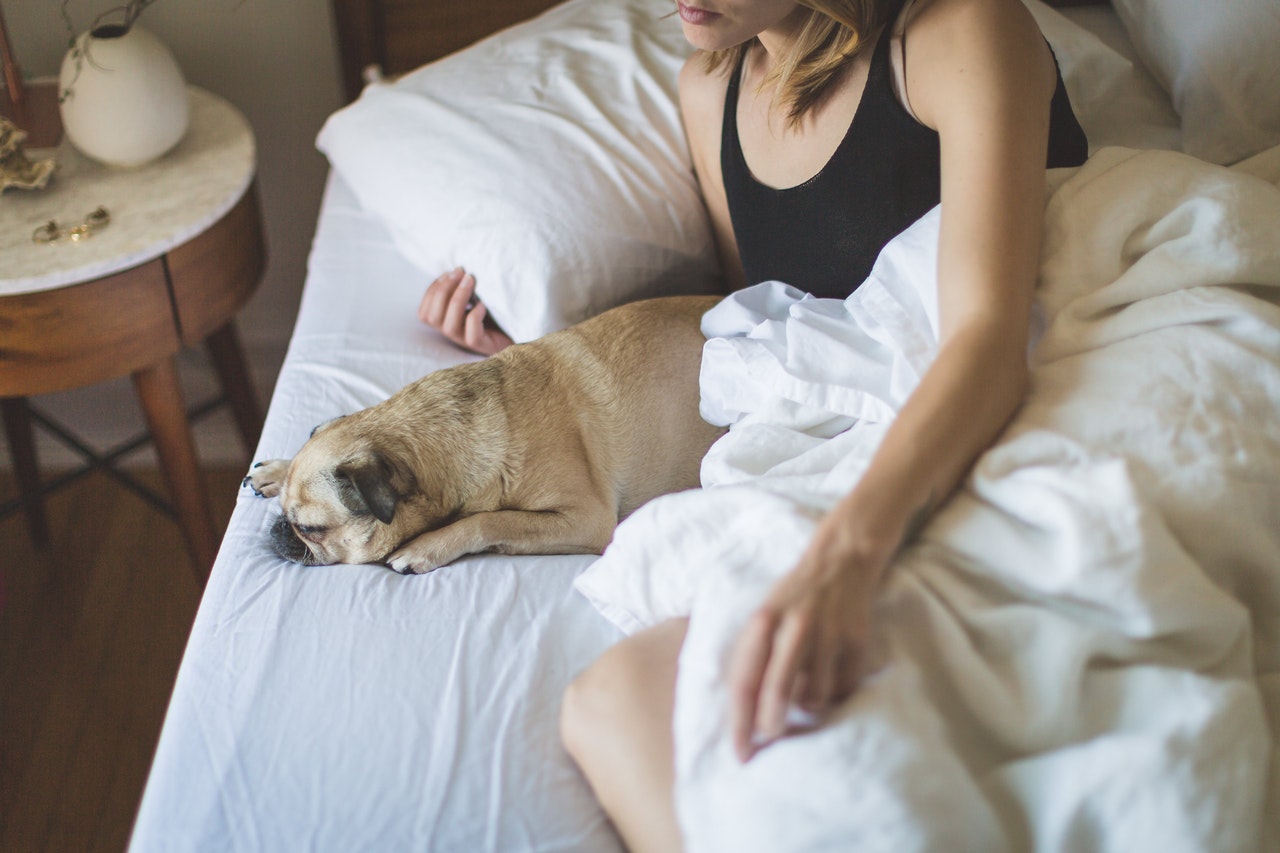Ask anyone right now, and they’ll probably tell you their sleeping patterns have changed. Some may be sleeping more, and others are sleeping less. Some people are binge-watching movies in bed, while others spend hours checking social media because of FOMO (the fear of missing out.)
Our daily routines have changed dramatically, as our daily routines are significantly disrupted.
These changes have impacted our circadian rhythms, which is our internal clock that helps regulate our sleep patterns. Natural light and meal times are two of the most powerful forces that keep our sleep patterns in order. But because we’re spending more time inside than normal right now and we’re eating at different times, our sleep patterns are all out of whack.
Instead of battling with your pillow and fighting groggy days, try these five science-backed techniques to reset your internal clock and enjoy better sleep.
Establish a New Routine
To encourage your body to get into a new circadian rhythm, you may need to establish a new sleep routine. Going to bed at 10 pm and waking up at 6 am isn’t necessary right now, so why continue to force yourself to do it? Instead, focus more on your sleep-wake cycle. Go to bed when you feel tired and wake up without an alarm. You’ll sleep a bit more than usual at the beginning, but after a week or so, your body will reset itself to a new cycle. Then, try to stick to this new routine.
Try to Stay Awake
If trying to reset your sleep cycle naturally doesn’t work, try a little reverse psychology. A study at the University of Glasgow found that people who lay in bed and tried to stay awake with their eyes open fell asleep faster than those who were told to go to bed and “fall asleep.” Sleep is one of those things that the harder we try to do it, the more we fail. So tricking our brains into trying to stay awake can work for some.
Hide Your Clock or Smartphone
Some people (like me) still sleep with an alarm clock at their bedside, though most people have transitioned to a smartphone as their alarm. When you’re having trouble sleeping, being reminded of the time can aggravate your efforts to fall asleep. Watching those minutes tick by makes each one seem longer and moves sleep further away. Do yourself a favor and hide the clock (or smartphone.) You’ll reduce your stress and increase your chances of falling asleep.
Get Out of Bed
How can getting out of bed help you fall asleep? Well, your bed is supposed to be a place of rest, but if you’re having trouble sleeping, your brain starts to associate it with being awake. By getting out of bed when you’re having trouble sleeping, you’ll maintain the bed + sleep bond and won’t negatively affect your sleep in the future. Richard Wiseman, professor for the Public Understanding of Psychology at the University of Hertfordshire and author of Night School: Wake Up to the Power of Sleep, advises people to do something that engages both your body and mind, such as a jigsaw puzzle or coloring book.
Cool Your Body
Staying cool is a hard one right now as most of us in the northern hemisphere are getting ready for summer, but since your internal body temperature is integral to sleep, it can be helpful if you’re having trouble. Scientists at Harvard Medical School found that when you’re falling asleep, your body temperature drops slightly, which they think can speed up the process.
Try keeping the temperature down in your bedroom, either with air conditioning, a fan, or lighter bedding. Dunk your face in cold water for 30 seconds right before heading to bed. The cold water triggers an involuntary reflex, which lowers your heart rate and blood pressure and encourages your body to cool down.
Another way to lower your body temperature is to wear socks on your feet. Swiss researchers observed that warm feet increased heat loss from the body, making it easier to fall and stay asleep. (It’s also why some people will wake up sometimes with just their feet sticking out of the covers. They were hot, and their bodies automatically knew what to do to keep cool.)
Smell Something Soothing
A study at Wesleyan University found that people who’d sniffed lavender oil for two minutes at intervals before bed slept better and felt more vigorous in the morning. Smelling lavender or another soothing scent can help calm your nerves, lower your blood pressure, and make you more relaxed, all of which will help you sleep. Sometimes it’s easy to get into a new sleep rhythm, like when we’re on vacation or summer holiday as kids.
It can be hard to find solutions to poor sleep, no matter what’s causing it. Hopefully, these five science-backed tips will lay a good foundation for a new sleep pattern, and aid you in getting the rest that you need right now.


